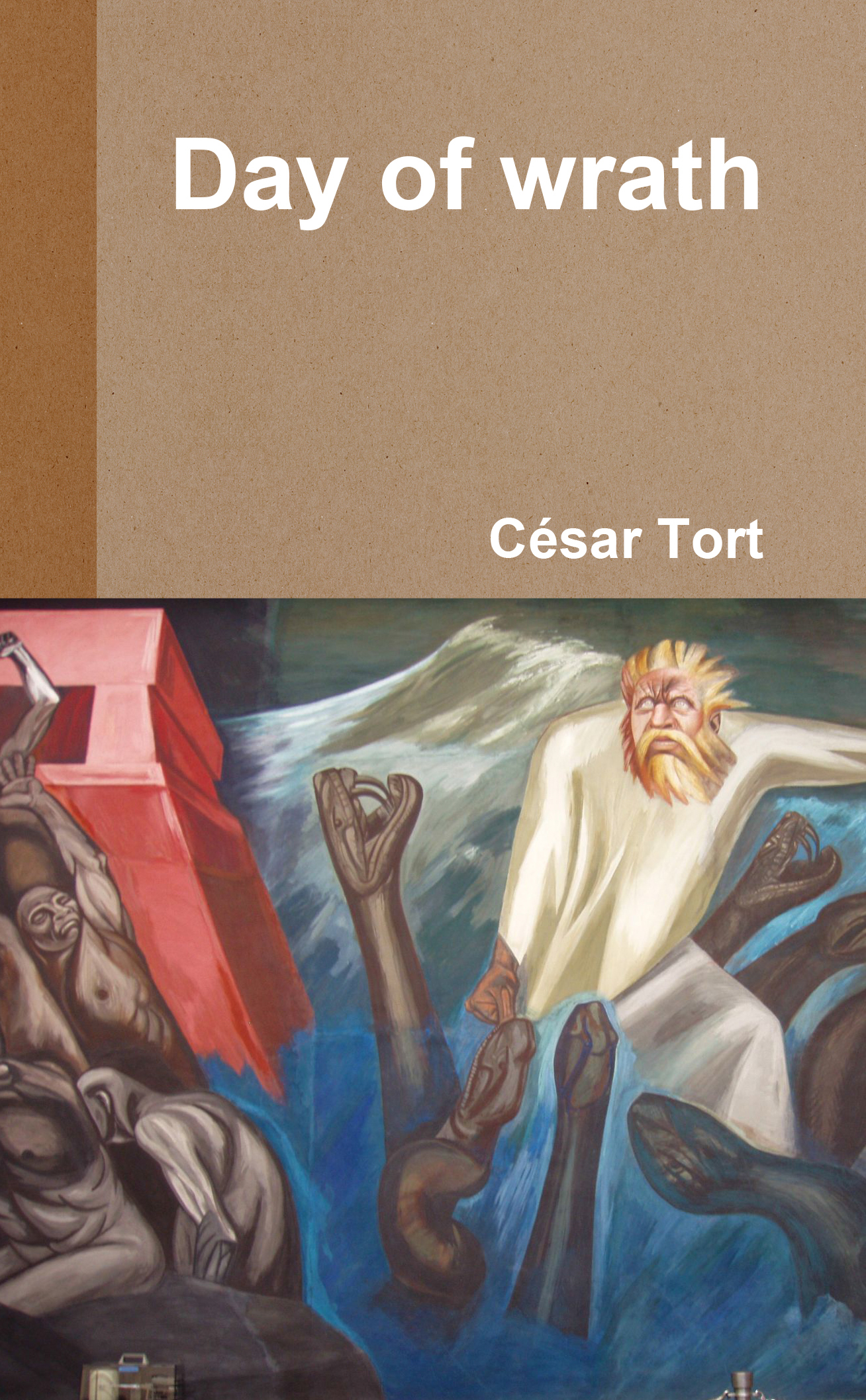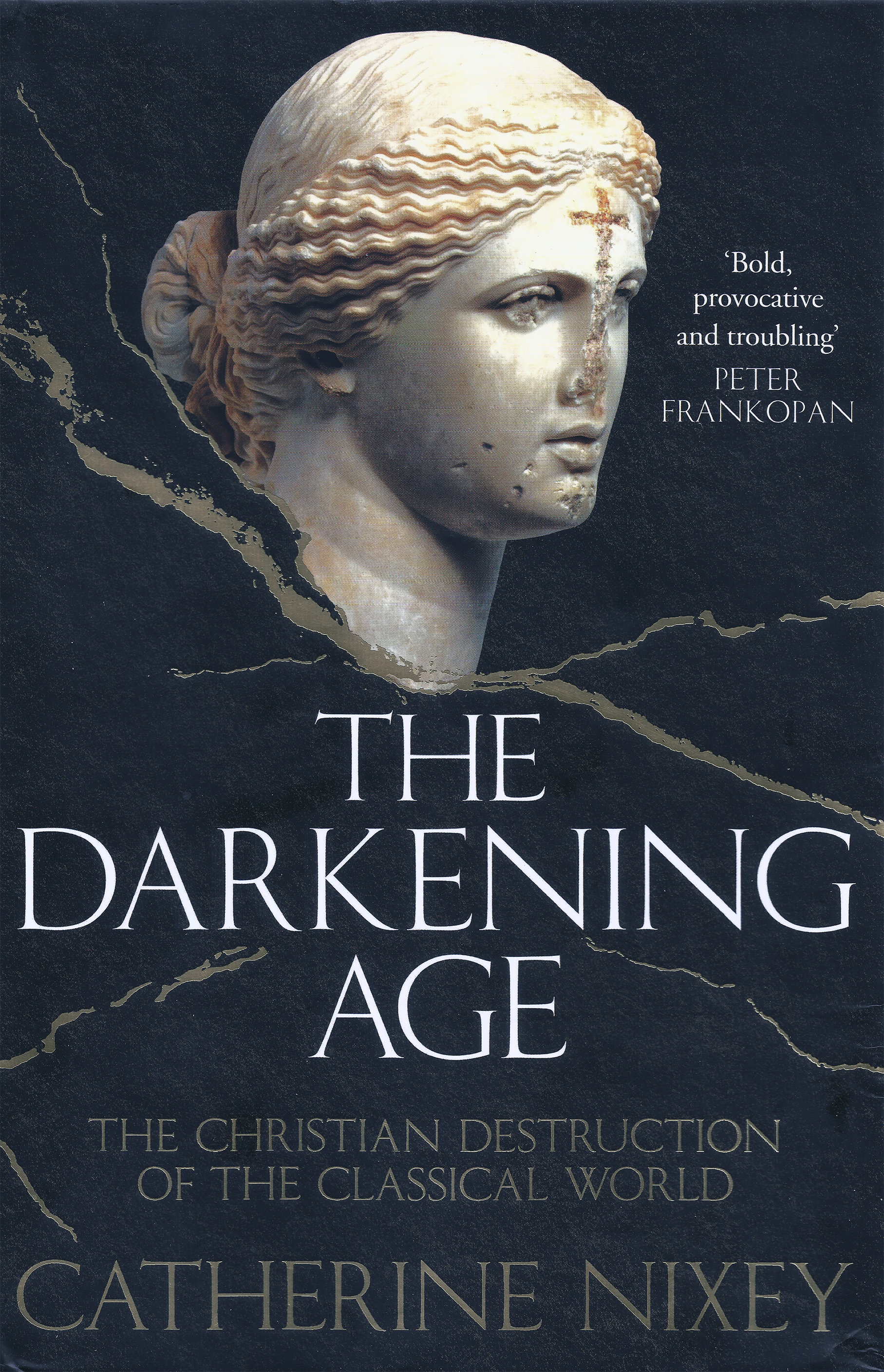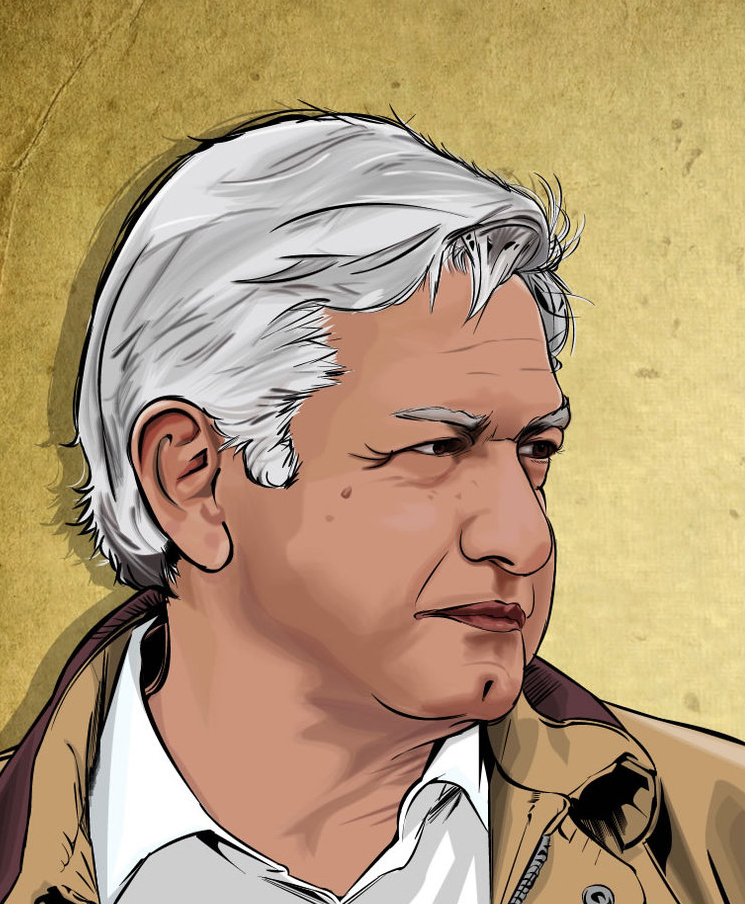Judaism's bastard sons
What is redeemable in psychohistory?
 The best introduction to the sane side of the deMausean thought available on the internet appears in the third part of the book The Emotional Life of Nations, especially in the final chapters: “The Evolution of Childrearing” and “The Evolution of Psyche and Society.” However, even in the following pages, where I would like to spare the salvageable part of deMause’s legacy, I will continue the criticism of his psychohistory.
The best introduction to the sane side of the deMausean thought available on the internet appears in the third part of the book The Emotional Life of Nations, especially in the final chapters: “The Evolution of Childrearing” and “The Evolution of Psyche and Society.” However, even in the following pages, where I would like to spare the salvageable part of deMause’s legacy, I will continue the criticism of his psychohistory.
Pseudoscientific charts
DeMause likes to interpolate ever-ascending charts on the historical treatment of children in his books, and even once he wrote that primitive humans treated their children better than our ape ancestors. I do not think that is true. The most terrible form of interactions between parents and children is the ritual sacrifice and cannibalism of one’s own children: a level of cruelty that has not been observed in primates other than man. Also, deMause assumes a gradual improvement in child treatment from 460 AD to approximately 1100 AD: an impossibility if we consider that we have no childrearing data around 8th century Europe. This mistake does not invalidate the salvageable part of deMause’s model: only the dogmatic idea that the treatment of children was always from worst to least bad.
In The History of Childhood deMause writes: “The image of Medea hovers over childhood in antiquity.” But in post-Homeric Greece it was already unusual to kill grown-up children as Medea did. The insistence on denigrating the Classical World is derived from the deMause’s dogma that childcare has always gone from worse to less bad, from major to minor abuse: the eternal upward charts in deMausean psychohistory. The prolific Jewish psychohistorian Robert Godwin, for example, emphatically dispatches the Greco-Roman world as barbarian in terms of upbringing. Once again: regarding the Jewish narrative versus the Aryan, in the next chapters we will see who were really the most barbaric.
One of the things that piqued my interest when I first encountered psychohistory was the secularized Judeo-Christian spirit breathed in it. DeMause and Godwin seem to reject the vision of the Enlightenment: to consider the Middle Ages darker than the most lucid moments of Greece and Rome. In contrast to deMause’s claims it does not seem likely at all that the Middle Ages was better as childrearing methods are concerned, or that Christendom was better compared to Pericles’ Athens or Republican Rome. In my own version of psychohistory, the Athenians should have treated the children well enough to allow the explosion of arts, philosophies and politics that we have inherited. However, due to the tenet that “the further back in history one goes, the lower the level of child care,” deMause has blinded himself to see the obvious. True, an archaic ritual performed at Knossos by the non-Aryan natives included the cooking and eating of children as part of the fertility celebration (see the history on the white race by William Pierce in Who We Are). But as Ramón Xirau writes at the beginning of his Introducción a la Historia de la Filosofía, the Greece that we know is great precisely because it gave up such practices: something I’ve always related to the Hebrew story of Abraham, who at the last moment changed his mind as to sacrifice his child. The veracity of Xirau’s opening paragraph can be substantiated in the final chapter of the most erudite contemporary study on the subject, Human Sacrifice in Ancient Greece by Dennis Hughes. To the Greeks of the time of Plato and Theophrastus, says Hughes, human sacrifice was a thing of the past; what was left in their time were isolated cases “and the custom is particularly associated with non-Greeks.”
Not only does the classical world refutes deMause. Julian Jaynes, the author of the book that could be classified as a different kind of psychohistory, implied that the cruel Assyrian law contrasted sharply with the Code of Hammurabi, written six centuries earlier. However, deMause might not err in his assessment of the West from the 12th century AD onward. One of my most memorable readings, based on the captivating television series by Kenneth Clark, was the second chapter of Civilisation about the “The Great Thaw” of Europe at the beginning of the 12th century, as well as the next chapter on courtly love: the West had invented love. The thaw was nothing other than the beginning to treat European women better than what non-westerners did in the rest of the world; hence the treatment of these women to their children changed. From the late 13th century begins the historical record of the death penalty in cases of voluntary infanticide. In addition to their relatively high IQ, psychogenically speaking the people of Europe would evolve more than the rest of the world.
But the white man of the present is suffering the worst psychosis in the history of the West. When by the end of 2008 I called deMause’s attention on the issue of the betrayal that the white man inflicts on himself with mass migration, I realized he knew nothing about the subject. This has led me to think that his chart that appears in his texts about the evolving historic personalities is flawed. DeMause puts there as inferior the psychoclass that has as its model the “patriotic” man compared to the “activist.” The truth is that patriots are precisely the ones who defend their nations against the greatest evil of our times: race replacement. Unlike the ivory tower where both deMause and the academics live, it appears that the recent Western self-treason represents the most serious, plummeting drop in psychogenesis since prehistory.
The case of deMause is aggravated by his Jewish colleagues who abhor not only the Classical World but the West in general: a position that has infected and corrupted his school of psychohistory since its inception. I have not been able to corroborate that deMause himself comes from a Jewish family, although the names he gave to his children, as well as his extreme aversion for the Third Reich, would seem to suggest it.
Shoddy scholarship
DeMause’s mistakes do not end with the discussion in previous pages. Since he sometimes uses his sources very loosely, the possibility exists that his psychohistory could consist of assumptions based on little, if any, evidence. I have found that occasionally deMause takes his data out of context, and that some of his pronouncements on subjects I know better contain serious errors. (For example, instead of the Mexica patron god, Huitzilopochtli, in his books he writes of him as an “Aztec goddess.”) Although such errors do not invalidate his theory, deMause could have used his sources more carefully.
So far the only interesting discussion about psychohistory I am aware of can be read in several discussion pages of Wikipedia. After Ark insulted the editors of the article mentioned above, he returned for a brief time to edit and discuss in the article “Infanticide.” In the discussion page Julie Hofmann Kemp, the editor whom Ark had insulted, responded to him and the other Wikipedia editors in a reasonable manner:
Problems with this. You’re using shoddy scholarship to try to back up an unprovable claim. DeMause provides no analysis or discussion of his sources, merely a catalog of horrific quotes. We cannot tell the context, nor can we take them as representative.
What Julie told Ark next is more substantial:
Anybody can go through books and pick out quotes to make an argument. Since deMause’s work is criminally lax in scholarship, I suggest you try to use better sources. I just reread “A Modest Proposal,” and could see absolutely nothing that referred to rotting corpses of babies in the streets. The only reference was to children accompanying their mothers begging. This certainly makes me question the veracity of other statements in this article.
Ark angrily replied that she could not accept the reality of infanticide because it was very uncomfortable for her. Julie responded:
No, Ark—I am fully aware that we live in a society where people do horrible things to children. I am also aware that this has long been the case. There are plenty of records out there for at least the Victorian area on things like the treatment of children in workhouses, and they clearly indicate widespread abuse of minors and women. I removed what I did [from the Wikipedia article] because I reread Swift and the deMause article you used as sources. Unfortunately, there seems to have been a lot of stuff quoted out of context. Some of the sources, like Philippe Ariès, I’ve read. If you want things to stay unchallenged, you’ve got to make sure they have recognizable merit. This is why I think we need to look beyond deMause. DeMause is only one of thousands of people writing on child abuse and infanticide. As a historian, I can see great gaping holes in deMause’s use of sources. It doesn’t make him wrong, but it certainly sets off warning bells—if the scholarship doesn’t stand up, then are the conclusions he draws really proven?
After further critical responses from other editors, quite reasonable and civic, Ark quit editing Wikipedia, and this time definitely, on my birthday of 2002. I agree that the way deMause has used the sources lacks academic rigor. However, if as Julie and others advised, it could be possible to source deMause’s model with non-deMausean references, the psychohistorical structure would be supported upon a new sort of column.
That is exactly what I did. In March and April of 2008 I massively edited “Infanticide,” the same article where years before Julie and Ark had discussed, adding a hundred references that I did not read in deMausean texts, but in a voluminous treatise of Larry S. Milner published in 2000. The model of the breakdown of the bicameral mind by surpassing the infanticidal psychoclass, is the cornerstone on which rests what remained of the psychohistorical building after my critique. Therefore, I will reproduce here what I added to that article, which I also translated for Wikipedia in Spanish. In my second book the critique of psychiatry contained such incredible facts that, unlike the other books, I was forced to include bibliographical notes. For the same reasons here I will do the same.
___________
The objective of Day of Wrath is to present to the racialist community my philosophy of The Four Words on how to eliminate all unnecessary suffering. If life allows, next month I will reproduce another chapter. Day of Wrath is available: here.
Julian, 34
Julian presiding at a conference of Sectarians
(Edward Armitage, 1875)
Julian Augustus
After Aetius’s visit to me, I met Maximus only in secret. I arranged this by seeing to it that the guards who accompanied me were brothers in Mithras. I don’t think I was once betrayed during the three years I lived with Oribasius at Pergamon. I also made a point of becoming a friend of the bishop of the city. With him, I observed every Galilean festival. I hated myself for this deception, but I had no choice.
During these years, I was free to travel wherever I pleased in the East. I could even visit Constantinople, though the Chamberlain’s office suggested tactfully that I not live there since it was, after all, the imperial capital without, at present, an emperor in residence, which meant that any visit I chose to make could be construed as… I understood perfectly and stayed away.
My request for permission to go to Athens was rejected. I don’t know why. Gallus sent me several invitations to come to Antioch, but I was always able to avoid accepting them. I think he was relieved not to have me near him. However, he was most conscientious in his role as older brother and guardian, not to mention ruler. I received weekly bulletins from him asking about my spiritual health. He was eager, he said, for me to be a devout and good man, like himself. I think he was perfectly sincere in his exhortations. His fault was a common one. He simply did not know what he was; he saw no flaw in himself, a not unusual blindness and preferable, on the whole, to being unable to find any virtue in oneself.
My friendship with Oribasius is the only intimate one I have ever had—the result, I suppose, of having never known the ordinary life of a family. Oribasius is both friend and brother, even though we are not much alike in disposition. He is skeptical and experimental, interested only in the material world. I am the opposite. He balances me. Or tries to. And I think at times I give him some inkling of what the metaphysical is like. For nearly four years we lived together, traveled together, studied together. We even shared a mistress for a time, though this caused some disturbance since I found, to my surprise, that I have a jealous nature.
I had never forgiven the Antiochene at Macellum for preferring Gallus to me. Yet I should have. After all, Gallus was older and handsomer than I. Even so, I had been resentful. I did not realize to what extent, until I was again put in exactly the same situation. One afternoon I overheard Oribasius and our mutual mistress—a blue-eyed Gaul—making love. I heard their heavy breathing. I beard the leather thongs of the bed creak. Suddenly I wanted to murder them both. I knew then exactly what it was like to be Gallus, and I almost fainted at the violence of my own response. But the moment quickly passed and I was filled with shame.
During those years, Maximus taught me many things. He showed me mysteries. He made it possible for me to contemplate the One. He was the perfect teacher. Also, contrary to legend, he did not in any way try to excite my ambition. We never spoke of my becoming emperor. It was the one forbidden subject.
Celsus and Democritus
Note of the Ed.: Celsus was Christianity’s first great critic. The following is an excerpt from Nixey’s chapter ‘Wisdom is Foolishness’:
 Celsus did not soften his attack either. This first assault on Christianity was vicious, powerful and, like Gibbon, immensely readable. Yet unlike Gibbon, today almost no one has heard of Celsus and fewer still have read his work. Because Celsus’s fears came true. Christianity continued to spread, and not just among the lower classes. Within 150 years of Celsus’s attack, even the Emperor of Rome professed himself a follower of the religion.
Celsus did not soften his attack either. This first assault on Christianity was vicious, powerful and, like Gibbon, immensely readable. Yet unlike Gibbon, today almost no one has heard of Celsus and fewer still have read his work. Because Celsus’s fears came true. Christianity continued to spread, and not just among the lower classes. Within 150 years of Celsus’s attack, even the Emperor of Rome professed himself a follower of the religion.
What happened next was far more serious than anything Celsus could ever have imagined. Christianity not only gained adherents, it forbade people from worshipping the old Roman and Greek gods. Eventually, it simply forbade anyone to dissent from what Celsus considered its idiotic teachings. To pick just one example from many, in AD 386, a law was passed targeting those ‘who con tend about religion’ in public. Such people, this law warned, were the ‘disturbers of the peace of the Church’ and they ‘shall pay the penalty of high treason with their lives and blood’.
Celsus paid his own price. In this hostile and repressive atmosphere his work simply disappeared. Not one single unadulterated volume of the work by Christianity’s first great critic has survived. Almost all information about him has vanished too, including any of his names except his last; what prompted him to write his attack; or where and when he wrote it. The long and inglorious Christian practice of censorship was now beginning.
However, by a quirk of literary fate, most of his words have survived. Because eighty-odd years after Celsus fulminated against the new religion, a Christian apologist named Origen mounted a fierce and lengthy counter-attack. Origen was rather more earnest than his occasionally bawdy classical adversary. Indeed, it was said that Origen had even taken the words of Matthew 19:12 (‘For there are some eunuchs… which have made themselves eunuchs for the kingdom of heaven’s sake’) a little too much to heart and, in a fit of heavenly self-abnegation, castrated himself.
Ironically, it was the very work that had been intended to demolish Celsus that saved him. No books of Celsus have survived the centuries untouched, true—but Origen’s attack has and it quoted Celsus at length. Scholars have therefore been able to extract Celsus’s arguments from Origen’s words, which preserved them like flies in amber. Not all of the words—perhaps only seventy per cent of the original work has been recovered. Its order has gone, its structure has been lost and the whole thing, as Gibbon put it, is a ‘mutilated representation’ of the original. But nevertheless we have it…
In the ensuing centuries, texts that contained such dangerous ideas paid a heavy price for their ‘heresy’. As has been lucidly argued by Dirk Rohmann, an academic who has produced a comprehensive and powerful account of the effect of Christianity on books, some of the greatest figures in the early Church rounded on the atomists. Augustine disliked atomism for precisely the same reason that atomists liked it: it weakened mankind’s terror of divine punishment and Hell. Texts by philosophical schools that championed atomic theory suffered.
The Greek philosopher Democritus had perhaps done more than anyone to popularize this theory—though not only this one. Democritus was an astonishing polymath who had written works on a breathless array of other topics. A far from complete list of his titles includes: On History; On Nature; the Science of Medicine; On the Tangents of the Circle and the Sphere; On Irrational Lines and Solids; On the Causes of Celestial Phenomena; On the Causes of Atmospheric Phenomena; On Reflected Images… The list goes on. Today Democritus’s most famous theory is his atomism. What did the other theories state? We have no idea: every single one of his works was lost in the ensuing centuries. As the eminent physicist Carlo Rovelli recently wrote, after citing an even longer list of the philosopher’s titles: ‘the loss of the works of Democritus in their entirety is the greatest intellectual tragedy to ensue from the collapse of the old classical civilisation’…
Celsus wasn’t merely annoyed at the lack of education among these people. What was far worse was that they actually celebrated ignorance. They declare, he wrote, that ‘Wisdom in this life is evil, but foolishness is good’—an almost precise quotation from Corinthians. Celsus verges on hyperbole, but it is true that in this period Christians gained a reputation for being uneducated to the point of idiotic; even Origen, Celsus’s great adversary, admitted that ‘the stupidity of some Christians is heavier than the sand of the sea.’
Siege’s most recent entry is important. Let’s take a look at Mason’s words:
At present the worst enemies of a revolution happening in America are: the unbroken sway of the System’s thought-control, i.e. the mass media; and the continued existence of this economy, as agonizing as it is protracted (and miraculous).
Regarding Mason’s second point, Mike Maloney, like millions of normies, may be a perfect western idiot. But it is worth watching his first four videos of why the American dollar is going to suffer a great setback in our lifetime.
Regarding Mason’s first point, there are limits to what one can say online. Perhaps a talented writer could write a series of novels in which the revolutionaries silenced the media by means of dozens of assassinations of anchors after the revolutionary front had warned: ‘An anti-white message in MSM leads to certain death’.
Strategically, those novels would be quite different from the quintet of Harold Covington. I’ve recently seen, on Twitter, that the Covingtonista who appeared on the last WDH podcast believes it’s possible to hostilely take over a piece of territory from the US and that, unlike what Uncle Sam did in Atlanta during the Civil War in the 19th century, and unlike the genocidal bombing of cities in Germany in the 20th century, this time Uncle Sam is going to behave and respect a neo-Nazi state!
 The Covingtonistas are dreaming. Mason is down to earth. Again, regarding his second point above, the System itself will do us the favour of collapsing its own economy (those who have not yet seen the first four videos of Maloney’s course should watch them today).
The Covingtonistas are dreaming. Mason is down to earth. Again, regarding his second point above, the System itself will do us the favour of collapsing its own economy (those who have not yet seen the first four videos of Maloney’s course should watch them today).
Regarding silencing the media, we need a novelist with the talent of Covington who elaborates, in a fictional saga, the question of settling accounts with the media (as yesterday happened, in real life, in the Annapolis shooting).
Siege, 44
Readying for revolution

The mood of much of the population and the state of the economy both indicate that everyone could have a surprise in store for them at practically any time. Belief in the rottenness of the System coupled with the belief in ourselves and in our power to make revolution will guarantee that, even if we are surprised by any suddenness of events, we will not be found unprepared and helpless, to become victims rather than masters.
At present the worst enemies of a revolution happening in America are: the unbroken sway of the System’s thought-control, i.e. the mass media; and the continued existence of this economy, as agonizing as it is protracted (and miraculous). In short, the System survives and functions so people are not allowed to think, to know. Plus they can still be alternately rocked to slumber or subtlety coerced into inaction.
Our agenda at present then, as indicated by the prevailing conditions, would include: focusing all our concentration on the ideological swing from reaction all the way over to total revolution.
In other words, effecting a revolution within our existing Movement first; learning rapidly to live outside of the economy and live off of the System in order to help hasten its demise and to insure our own survival—whether there remains a month or twenty years left to this state of affairs; getting away from metropolitan areas and quickly establishing solid, independent enclaves for ourselves and our families; practicing both the subtle and overt undermining of naive faith in the existing government or System on the part of the people around us, not as “radicals” but as friends and leaders for the future; and having prudent stocks of weapons and sufficient stores of ammunition. Going “overboard” in quantities or in grossly exotic and illegal weaponry is a serious blunder.
Concentrate on safe refuge and let all words and actions go toward undermining the System and toward strengthening the Revolution.
In the future, at any time, the best friends of a revolution in this country will be any worsening or collapse of the economy along with any large-scale disaster, disruption, or upheaval from any source. We want, first, for the System to “crap out” before one and all so that the evil Jinni, the illusion that’s been holding it together for these past decades, will be once and for all dispelled. We want its pimps to be deprived of their entire purpose, their entire excuse for living (as well as their protection)—which depends completely on this economy’s survival.
And we especially want to see the System and its hired hoods under attack by the identical forces they created and unleashed upon our segment of the population as part of their “master plan” of control. We want to see the System’s strength and structure largely destroyed, initially by forces independent of our own. Only at that time will we be able to begin undertaking bold and sweeping actions toward assuming open control for ourselves.
By that time, and it could come much sooner than anyone expects, we will absolutely need to have a strong and well-functioning revolutionary organization already operational and with a full spectrum of direct experience under its belt. It is in this area and nowhere else that the breakthrough must be made: the area of revolutionary organization. Without it, the revolution must go to someone else who does possess the strength of discipline and the will necessary to move and achieve it.
First and last, the responsibility is entirely ours.
Vol. XIV, #12 – December, 1985
_____________
Why we are reproducing articles from Siege can be surmised: here.
Yesterday I saw, after a long time, a film that, as girls, my sisters loved: Zeffirelli’s adaptation of Romeo and Juliet. Older people remember that it was a hit for the adolescents of other times.
Nowadays it would be unthinkable that a film of this kind would interest the directors or the degenerated youth who only listen to degenerate music.
When yesterday I saw the young man singing What Is A Youth (composed by Nino Rota, written by Eugene Walter and performed by Glen Weston) to an audience that included Italian beauties, I could not help but feel something deep about the world that I used to live in ideals, and that is now being betrayed in the most criminal way not only in Italy, but in the rest of the West.
Almost at the beginning of the film we see a dialogue between Juliet and her mother in which the mother begins to prepare her, at fourteen, for marriage. Later the visuals of the marriage, filmed in the interior of a Romanesque church, are also very moving and in a healthy culture should be a paradigm of love.
What is a youth?
Impetuous fire
What is a maid?
Ice and desire
The world wags on
A rose will bloom
It then will fade
So does a youth
So does the fairest maid
Comes a time when one sweet smile
Has its season for awhile
Then Love’s in love with me
Some may think only to marry
Others will tease and tarry
Mine is the very best parry
Cupid he rules us all
Caper the caper; sing me the song
Death will come soon to hush us along
Sweeter than honey and bitter as gall
Love is a task and it never will pall
Sweeter than honey and bitter as gall
Cupid he rules us all
(20 second flute interlude)
A rose will bloom, it then will fade
So does a youth
So does the fairest maid
If there is something that I liked in a Covington novel it is that, in the ethnostate of his story, the exhibition of films made after the 1960s is not allowed.
Siege, 43
Survivalism

I don’t pretend to be an expert on the art of surviving under very primitive or hostile conditions. Yet, aren’t we all doing that very thing when you really consider it, and more so all the time as this civilization continues to rot away? Despite the erroneous image some have in their minds of what the NSLF is, or is supposed to be, few of us in fact could qualify as guerrillas.
But probably the biggest difference between one of us and a “real” guerrilla is all the Hollywood-style phony image-making plus the fact that we aren’t little boys out to play army, but instead revolutionaries who must pick and choose our means as the case warrants. Primarily we’re not off on any trip and as real and valuable as survival preparations and techniques are, when made into a hobby or an obsession, they become an actual trip.
We are realists and as such we view these things merely as part of the weapons arsenal, not as central to the issue much less the issue itself. We are the first to tell you to be prepared but we are also the first to tell you never to get sidetracked.
The talk of survivalism is now everywhere. It’s not a bad thought. But I see that the profiteers have moved in, including those non-political, non-racialist, and even many who are part of the Establishment. Whenever this phenomenon occurs, you can be sure the thing is deliberately being overdone and is well on its way to being run straight into the ground. It is today’s fad. And whenever the Establishment feels secure enough to dabble around in something, you can be pretty sure that it is in no way very valuable to the struggle we must fight.
What about all those bomb shelters of the 1950’s? And what of those hidden weapons caches of the 1960’s? No Russian bombs, no Federal swoops. What about even all the tremendous harum-scarum of the Red-inspired marches and demonstrations of the 60’s and 70’s? No Red revolution in the streets of the U.S. Merely the latest thing to get spooky Right Wingers vibrating and shucking out vast amounts of loot.
But then the NSLF and Siege hammer away about the impending collapse and even the necessity of such a collapse before anything good can be accomplished. A contradiction? Not really. It has been stated before that very few things in this world are in plain black and white and this includes any sort of national collapse. We are in fact in a state of collapse now. We are indebted to a real slime-dripper, former New York City mayor John Lindsay, for providing us with this beautiful and accurate simile: the crime rate alone in this country is equal to a nation-wide, non-stop “riot in slow motion”.
If it hasn’t already passed the point of total ridiculousness, it will any second now. But that is beside the point. The Right, and people in general, think only in terms of the melodramatic, the stereotypical. This, however, has been proven enough times to be what the expected case will not be, that we in the Movement should know better. They can’t seem to see a Leader, they’re scared to death whenever one of us pulls a revolutionary act, and yet they think in these grandiose patterns of things happening in a big, overwhelming way. They cannot seem to think and see in terms of stages and degrees which is precisely how the Enemy advances.
Survivalism for the realist can be bound up in only a few very basic, commonsense principles.
First, remove yourself from what I call the “Death Zones” which are simply the metropolitan areas of the country. In these places not only is Big Brother’s grip the tightest, but the lowest-common-denominator genetic miasma has you badly out-numbered. The air and water are going fast, many of the so-called “Whites” still there are totally gone to degeneracy, and life itself is already abnormal, a mutation of what it once was. There is no hope for these places whatsoever, under any circumstances, so get the hell out now while the getting is still good.
Second, get located in an area where self-support can be possible. An area where you can successfully survive—and survive white—as a separate region in the event of a complete national break-down and protracted chaos. Let the cities go to hell, right where they came from! If the Russians don’t get ’em and if crime, famine, and disease don’t get ’em, then we’ll have to later on.
Third, on an individual level, you must have all set-up and ready-to-go independent sources of water, food, and heat. At the same time you must have weapons and sufficient stores of ammunition with which to defend yourself. All of the above is basic essential. None of it is wild or exotic.
The above is simply a way to live, a habit to get into. At the same time it doesn’t interfere with one’s daily business or daily living. It doesn’t make you “weird”. But you’d be amazed at the number of those who fall flat in all three of these categories. They are not going to survive. More than what I’ve outlined is optional.
For example, some advanced essentials would have to include medical supplies and independent communication sources. The actual organizing of neighbors into tight-knit communities and defense units is a tough one to accomplish. To go any further here would be to depart from reality because I know human nature and the laziness and “Never-Never Land” mentality of the Right Wing. They won’t do it because they don’t have the scope of imagination or the long-range gumption. I speak only about what you can and should do.
The danger in survivalism lies in the fallacy of the hobbyist-escapist’s own, private dreamworld. Most imagine that blowing exorbitant sums on the supposed trappings of the “professionals”, or the accumulation of a library of doom-say manuals, or even the acquisition of a monstrous personal armory, means survivalism. But are they living in a metro area? Are there hundreds of thousands of undesirable humans only blocks away? Do they have a good well? Wood-burning heat and adequate fuel? Can they grow or hunt food? Are they a likely target in the event of a nuclear war?
To me, survival and reality are the same. Phony, faddish “survivalism” is nothing more than a hobby and hobbyism is nothing more than escapism. But, admittedly, escapism appears to be part-and-parcel of the “Movement” as it stands.
Useless and expensive hobbies won’t make it. It’s all the same if you remain hooked up to Big Brother’s life-support system. If you are, you will get disconnected with the rest and sink with the ship. This phony survivalism appears to be the most elaborate yet of all the dished-up excuses for inaction and retreat. It’s another way to build yourself an expensive sandcastle. There is a clear path to survival just as there is a clear path to victory. Both involve being in touch with reality and in taking action, in going forward.
Vol. X, #10 – October, 1981
_____________
Why we are reproducing articles from Siege can be surmised: here.



